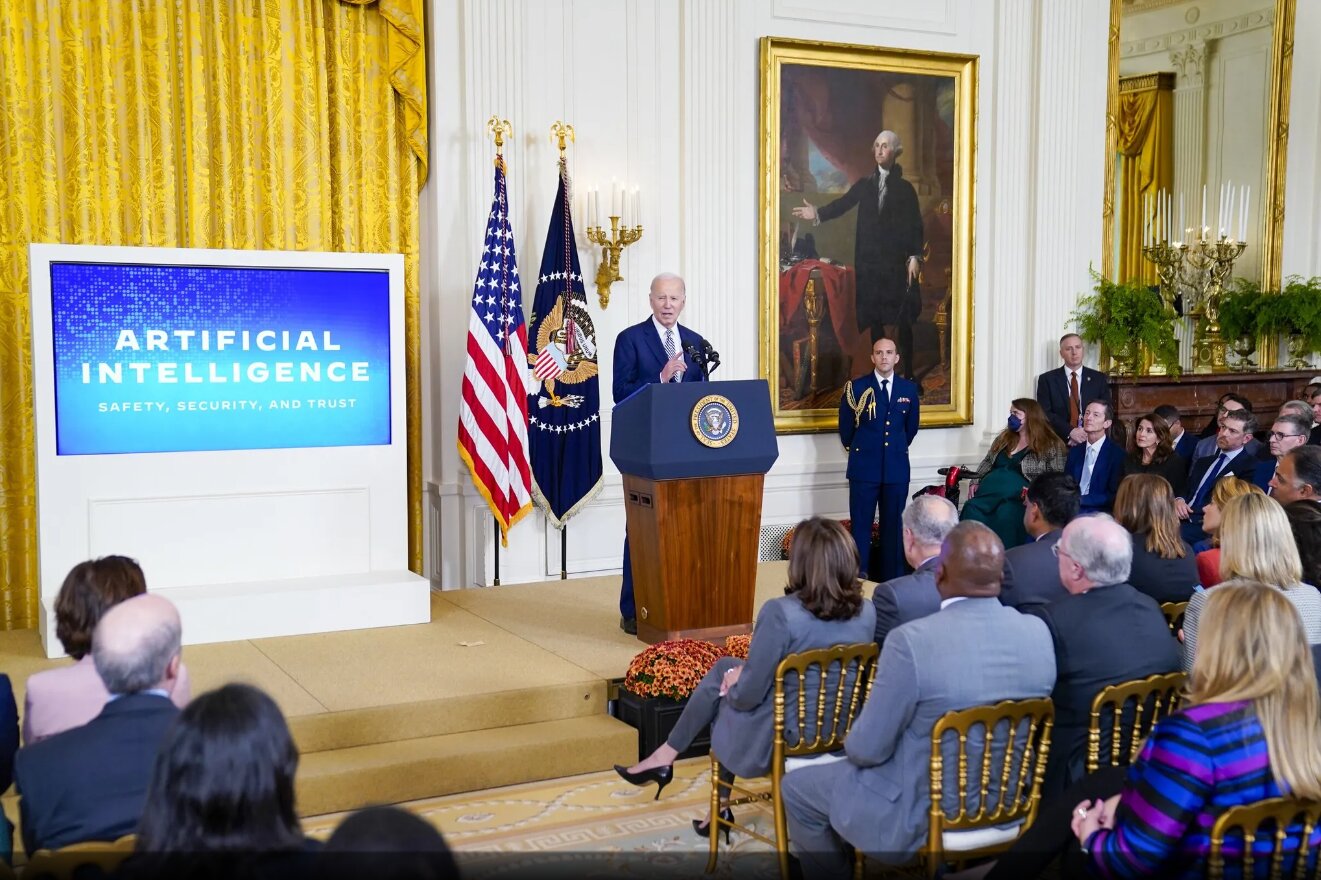
Generative artificial intelligence could be the death blow for local newspapers, depending on how it evolves.
It could also present opportunities, judging from several developments this week.

One was President Joe Biden’s executive order on Monday laying out AI standards. Among the many things it aspires to do is improve how artificially generated content is labeled, so it’s consistently and clearly identifiable.
The other development was an aggressive new push by the news industry to secure fair payment from tech companies exploiting their work to build AI systems.
In a technical analysis submitted to the U.S. Copyright Office, the News/Media Alliance trade group said it found “pervasive, unauthorized use of publisher content” by generative AI developers.
“The research and analysis we’ve conducted shows that AI companies and developers are not only engaging in unauthorized copying of our members’ content to train their products, but they are using it pervasively and to a greater extent than other sources,” Danielle Coffey, the group’s CEO, said in a release.
“This shows they recognize our unique value, and yet most of these developers are not obtaining proper permissions through licensing agreements or compensating publishers for the use of this content.”
The push follows a number of publishers blocking AI systems from scraping their content until compensation for such use is sorted out, through negotiation or potentially lawsuits.
I’m glad to see the industry trying to get paid at the start of this era, instead of getting fooled into giving away the farm like it did with the rise of the web, search and social media platforms.
The focus on AI comes as news outlets are still trying to get Congress to allow them to collectively bargain content agreements with Google and Facebook. It can only help to provide a fuller picture of how tech companies continue benefiting from trustworthy content that news outlets produce.
It’s also in tech companies’ interest to be sure news outlets get paid enough to survive and continue producing quality material.
“If you deplete the resource, there’s nothing left,” Coffey said in an interview.
While the compensation side of AI is addressed, Biden’s order could help open another door for the news industry as the technology emerges.
The order calls for the secretary of commerce to identify current tools, standards and methods for labeling and detecting “synthetic content” and tracking its provenance.
Private industry is already working on these things, including news organizations developing standards for identifying what’s produced by humans and what’s been skimmed, synthesized and presented by AI systems.
If clear and consistent labeling emerges, that could help news outlets regain some of the trust they’ve lost in recent years.
They have an opportunity to brand themselves as the equivalent of natural, organic food, a premium product free of the artificial, machine-generated content and filler that will soon be ubiquitous online.
If the provenance of synthetic content is made clear, news outlets can also benefit from being shown to be an original, authoritative source.
This would help with the industry’s ongoing effort to convince people that professional news is valuable and worth paying for, as opposed to what’s available for free by skimming search results and social media.
That’s part of the reason the news industry is struggling to find footing online. Relatively few people click through snippets online to the news sites paying people to report the stories and take the photos.
News outlets can theoretically block their content from Google. But that’s economic suicide, since the company dominates search and digital ad systems that publishers must use to survive online.
That dilemma will worsen as AI makes search results seem richer and more complete, funneling more traffic and ad revenue to platforms that don’t invest in their own journalism.
Already, six out of 10 Americans don’t regularly follow the news, according to the Pew Research Center survey I wrote about Sunday. Occasional news readers may be happy if the freebies online seem richer because of AI, and they don’t mind the privacy trade-off.
To hang on to the 38% that still value news enough follow it closely, and win back more, it needs to be clear what’s real and what’s artificial, and why it’s worth paying for the authentic stuff.
Two dailies become one: In Rhode Island, two daily newspapers published since the late 1800s are merging into a single paper, The Public Radio reports.
The Call of Woonsocket and The Times of Pawtucket have been owned by Rhode Island Suburban Newspapers since 2007. It’s combining them into The Blackstone Valley Call & Times starting Nov. 1, cutting The Call’s Sunday paper and printing the merged paper six days a week.
Colorado paper saved, for now: After it informed readers that Oct. 26 could be its last print issue, the Rio Blanco Herald Times in northwest Colorado received a flood of donations from the community. Nearly 200 people together gave more than $33,000, enough to keep the paper going to the end of the year at least, reports Corey Hutchins at Inside the News In Colorado.
This is excerpted from the free, weekly Voices for a Free Press newsletter. Sign up to receive it at st.news/SavetheFreePress.
Brier Dudley on Twitter: @BrierDudley is editor of The Seattle Times Save the Free Press Initiative. Its weekly newsletter: https://st.news/FreePressNewsletter. Reach him at bdudley@seattletimes.com.